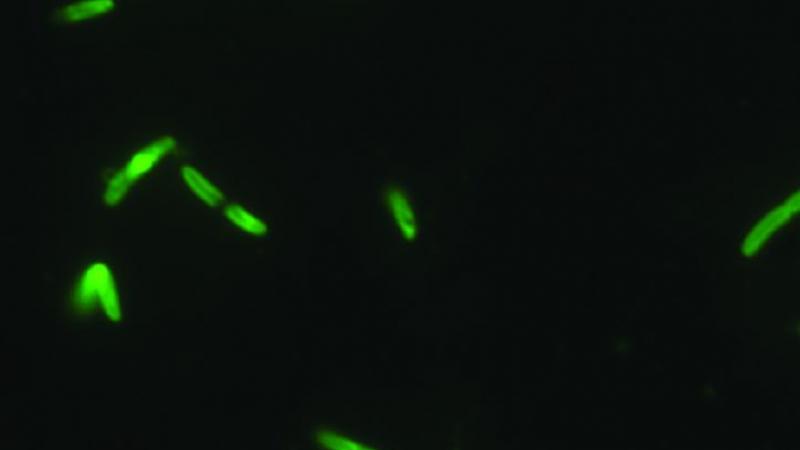CRISPR technologies for antibiotics discovery and development

However, these essential drugs increasingly lose potential as antimicrobial resistance is rising globally, while at the same time the drug development pipeline for novel antibiotics targeting priority pathogens is on the verge of drying out.
While the discovery of novel antibiotics was solely relying on bioactivity-guided screening and chemistry / chemical analytics-based methods, the advert of affordable sequencing technologies has opened a whole new approach: Instead of searching for the chemical compounds, we can search for the genes encoding the biosynthetic pathway that enables the cells to produce the compounds, for example with the bioinformatics software antiSMASH (https://antismash.secondarymetabolites.org), which is developed in our lab. Knowledge about these so-called “Biosynthetic Gene Clusters” also allows us to directly engineer these complex pathways.
In our group, we are working with a group of bacteria, the actinomycetes, which are prolific producers of bioactive small molecules and the source of around 60 % of the antibiotics used in the hospitals. For many decades, molecular biology with these organisms was hampered by difficult, slow and relatively inefficient genetic engineering protocols. The discovery of CRISPR, a bacterial adaptive immune system against phages and plasmids, and its translation into a versatile DNA engineering tool, however, nowadays open up previously unseen possibilities. We will present the establishment and related examples of a comprehensive CRISPR/Cas9-based genetic manipulation toolkit to very efficiently edit the genomes of the Streptomyces antibiotics producing cell factories.
Join IDA Bioscience for this CRISPR event and get the chance to learn more about CRISPR and bacteria.
Program
17.45: Arrival and sandwiches – please grab a sandwich and a soda and go to the meeting room
18.00: Introduction by IDA Bioscience
18.10: The molecular treasure hunt: How can we find new antibiotics by Tilmann Weber, Professor, DTU Biosustain
18.55: Short break
19.05: Engineering antibiotics producing bacteria with CRISPR tools by Yaojun Tong, Researcher, DTU Biosustain
19.50: Wrap up
IDA Bioscience
If you are not a member of IDA Bioscience already, you can sign up here. It is free of charge for all (no matter if you are a member of IDA or not).